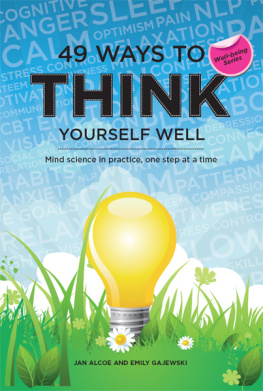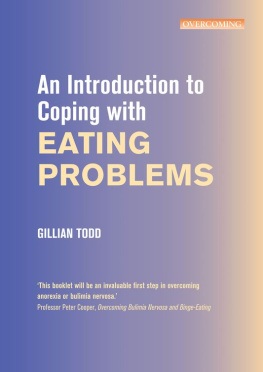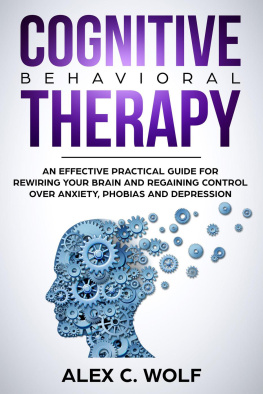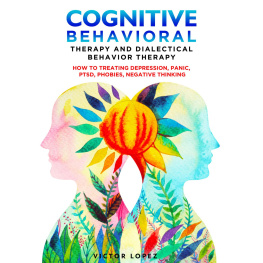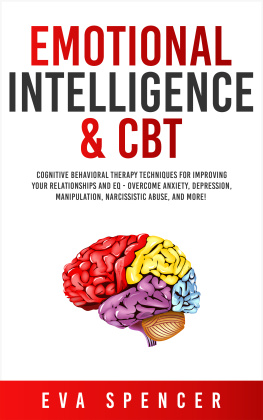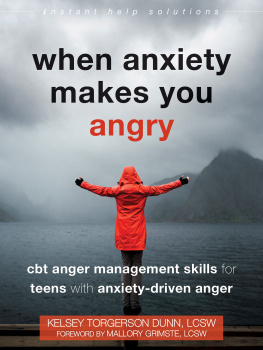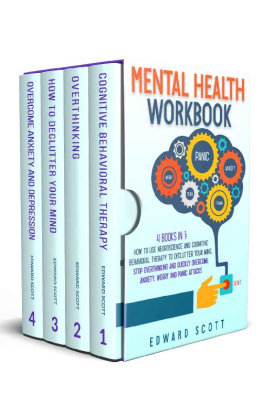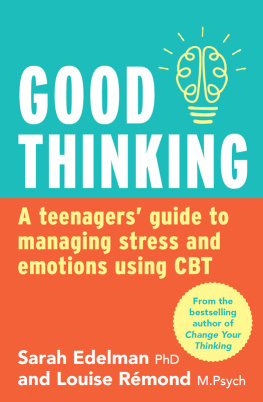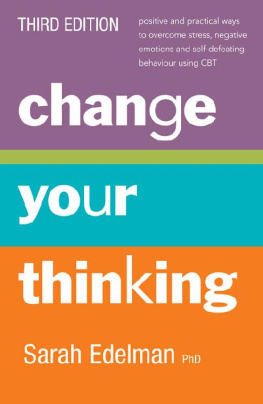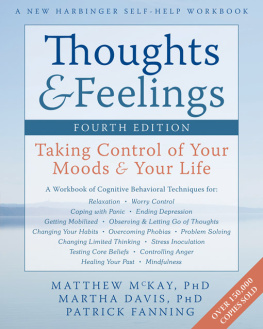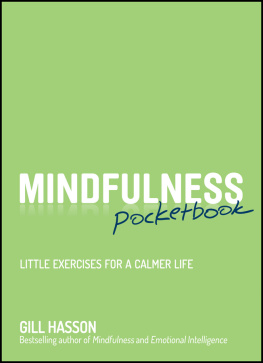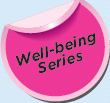49 WAYS TO THINK YOURSELF WELL
JAN ALCOE AND EMILY GAJEWSKI
49 WAYS TO
THINK
YOURSELF WELL
Mind science in practice, one step at a time
JAN ALCOE AND EMILY GAJEWSKI
First published in Great Britain in 2013 by Step Beach Press Ltd, Brighton
Copyright Jan Alcoe and Emily Gajewski
The right of Jan Alcoe and Emily Gajewski to be identified as the authors of the work has been asserted in accordance with the Copyright, Designs and Patents Act 1988.
All rights reserved. No part of this publication may be reproduced, stored in a retrieval system, or transmitted, in any form or by any means without the prior written permission of the publisher, nor be otherwise circulated in any form of binding or cover other than that in which it is published and without a similar condition being imposed on the subsequent purchaser.
A CIP catalogue record for this title is available from the British Library.
Paperback edition ISBN: 978-1-908779-05-2
Ebook edition (pdf) ISBN: 978-1-908779-18-2
Ebook edition (epub) ISBN: 978-1-908779-19-9
Ebook edition (mobi) ISBN: 978-1-908779-20-5
Photograph credits
Pp 12, 15, 24, 33, 50, 64, 140 Jessica Atkinson and Stephanie Dale, pp 36, 58, 63, 86, 93, 117, 126, 137, 138 Dan Betts, p82 Judi Dettmar, p133 Kevin Dooley, p45 Tony Fischer, p53 Horia Varlan, p90 Manuel Silveira Ramos, p102 ButterflySha
Series editor Jan Alcoe
Edited by Jo Hathaway
Typeset in Brighton, UK by Keren Turner at Katch Creative
Cover design by Keren Turner at Katch Creative
Printed and bound by Star Standard Industries, Singapore
Step Beach Press Ltd, 28 Osborne Villas, Hove, East Sussex BN3 2RE
www.stepbeachpress.co.uk
For our children, who teach us daily
about wise living and well-being
Acknowledgements
In recognition of the research into emotional well-being by the Human Givens Institute, UK, and the inspiration we have had from the teaching of Ivan Tyrrell and Joe Griffin (Human Givens Institute), Mark Tyrrell (Uncommon Knowledge), and Jill Wootton (Within Sight).
We would also like to acknowledge the many people we have been privileged to work with therapeutically, and what they have taught us about the power of the mind and the resilience of the human spirit.
49 Ways to Well-being Series
If you have selected this book, you may be looking for practical ways of improving your well-being. If you are a health and well-being practitioner or therapist, you may be helping your clients to improve theirs by encouraging them to practise some of the approaches it is based on. Well-being is a subjective state of feeling good which has physical, mental, emotional and even spiritual dimensions.
Because these dimensions overlap and interact, it is possible to improve well-being by making positive changes in any one of them. For example, taking up regular exercise (a focus on physical well-being) may improve concentration (mental well-being), happiness (emotional well-being) and sense of purpose (spiritual well-being). This series of well-being books is designed to provide a variety of routes to recovering, sustaining, protecting and enhancing well-being, depending on your interests and motivations. While some emphasise psychological techniques, others are based on physical movement, nutrition, journaling and many other approaches.
Each book in the series provides 49 practical ways of improving well-being, based on a particular therapeutic approach and written by an expert in that field. Based on tried and tested approaches, each title offers the user a rich source of tools for well-being. Some of these can be used effectively for improving general resilience; others are particularly helpful for specific problems or issues you may be dealing with, for example, recovering from illness, improving relaxation and sleep, or boosting motivation and self-confidence.
Enjoy dipping into any 49 Ways book and selecting ones which catch your interest or help you to meet a need at a particular time. We have deliberately included many different ideas for practice, knowing that some will be more appropriate at different times, in different situations and with different individuals. You may find certain approaches so helpful or enjoyable that you build them into everyday living, as part of your own well-being strategy.
Having explored one book, you may be interested in using some of the other titles to add to your well-being toolbox, learning how to approach your well-being via a number of different therapeutic routes.
For more information about the series, including current and forthcoming titles, visit www.stepbeachpress.co.uk/well-being
CONTENTS
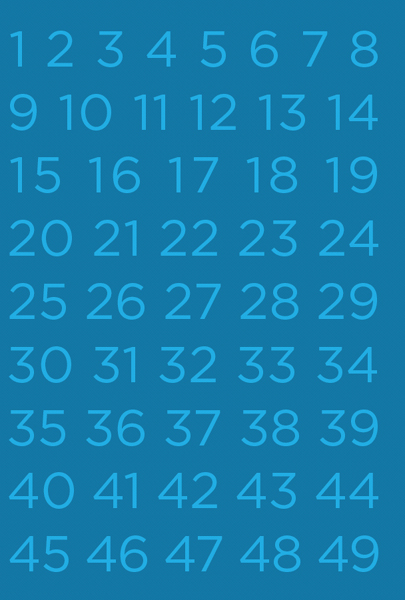
Welcome to 49 Ways to Think Yourself Well. As you dip into this guide, you will be learning about and using a wide range of ideas and techniques to improve your well-being, drawn from the broad field of contemporary psychology, including cognitive behaviour therapy, cognitive mindfulness, occupational therapy, hypnotherapy, Human Givens therapy, positive psychology, compassion-focused therapy and neuro-linguistic programming (NLP). All these approaches have evolved from research into our innate mental resources and the strong links between our thinking, emotions and behaviour. This guide will steer you around the pitfalls of negative thinking, harmful emotions and stress-led behaviours which will impair your physical and mental well-being. You can then learn how to use your own mental resources in positive ways to meet your needs, whether to improve your physical health, boost your confidence or motivation, keep calm in the face of challenge, improve your relationships or reach peak performance.
STARTING OUT
While you can start using the ideas and activities in this book in any order, we would encourage you to begin with some fundamentals, which we have organised into .
GLOSSARY
There is a glossary at the back of this book which explains some of the terms used in more detail. Any words that appear in the glossary have an asterisk next to them in the text, like this*.
USEFUL RESOURCES
Finally, we have listed some useful resources, should you wish to explore any of the themes or psychological approaches in more depth.
A NOTE OF WARNING
This guide is not intended to replace seeking medical or professional help for significant physical, emotional or mental problems. We would suggest that this is essential if you are experiencing any of the following:

